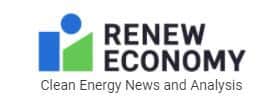The News Media and Digital Platforms Mandatory Bargaining Code – aka the outcome of the LNP/Seven/Nine/News Corp v Google/Facebook show-down – has now been legislated. The crux of the law is the threat of “compulsory arbitration” in negotiations between old media and tech platforms over the latter making payments to the former for content.
This is intended “to support the sustainability of the Australian news media sector by addressing bargaining power imbalances between digital platforms and Australian news businesses.” Yes, even with the entire government lobbying on its behalf, News Corp and the others are supposedly suffering an unjust “power imbalance.”
Officially, the law applies to news organisations with revenue over $150k who produce Australian news for Australian audiences. The law’s first impact, however, has been to oblige Big Tech to negotiate with the old media monopolies to avoid compulsory arbitration.
These negotiations have evidently been afoot for some time, because just this week details of Google’s deals began to emerge. News Corp is set to receive $50 million for Google’s links to its content. Seven and Nine will be receiving around $30 million each.
In exchange, Google will be debuting a “News Showcase” featuring old media content, much of which is currently pay-walled. It thereby entrenches its status as the gateway to the internet. Facebook is expected to soon try something similar.
What about the small media organisations that have an even greater “power imbalance” vis-a-vis Big Tech? A worrying report was published on Thursday by Renew Economy.

“News Showcase is a product for public interest journalism, so there may not be a great fit,” Google told the publication in response to its requests to open discussions. Renew Economy reports on climate and renewable energy with over 20 million page views in 2020.
Theoretically, the media law allows publishers like Renew Economy to register “an intention to bargain” with media regulator, ACMA. Tech companies would then have to make a remuneration offer to the media outlet to be able to include the news content on their platform.
But what if, having paid off the big players, Google and Facebook choose not to include the smaller outlets in their news feeds at all? Having secured a pay-off for the established players, the government appears to have given the question precious little concern.
If you liked this article, you can follow Christian on Twitter.
Feature image courtesy @marcusspiske via Unsplash.